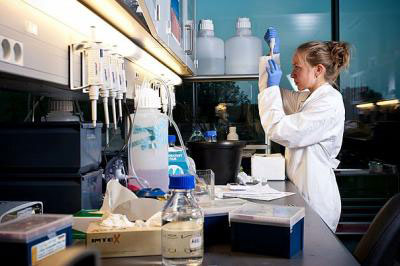 Our DNA and its architecture are duplicated every time our cells divide. Histone proteins are key building blocks of this architecture and contain gene regulatory information. Danish researchers show how an enzyme controls reliable and high-speed delivery of histones to DNA copying hubs in our cells. This shuttling mechanism is crucial to maintain normal function of our genes and prevent diseases as cancer.
Our DNA and its architecture are duplicated every time our cells divide. Histone proteins are key building blocks of this architecture and contain gene regulatory information. Danish researchers show how an enzyme controls reliable and high-speed delivery of histones to DNA copying hubs in our cells. This shuttling mechanism is crucial to maintain normal function of our genes and prevent diseases as cancer.
Mar 6th, 2014
Read more
Like mobsters following strict orders, newly engineered molecules called 'ubiquibodies' can mark specific proteins inside a cell for destruction. It's a molecular kiss of death developed at Cornell University that is paving the way for new drug therapies and powerful research tools.
Mar 5th, 2014
Read more
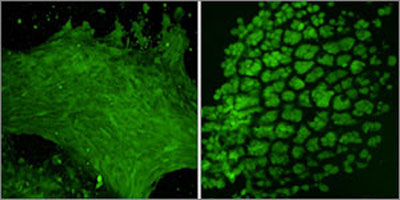 A bit of pressure from a new shrinking, sponge-like gel is all it takes to turn transplanted unspecialized cells into cells that lay down minerals and begin to form teeth.
A bit of pressure from a new shrinking, sponge-like gel is all it takes to turn transplanted unspecialized cells into cells that lay down minerals and begin to form teeth.
Mar 5th, 2014
Read more
Study shows that devices from silkworm silk are potentially attractive alternatives to metal and synthetic-based systems.
Mar 4th, 2014
Read more
Scientists at The Scripps Research Institute have invented small-molecule folding probes that enable them to quantify functional, normally folded and disease-associated misfolded conformations (shapes) of a protein-of-interest in cells under different conditions.
Mar 4th, 2014
Read more
An internet service which allows scientists to find antibodies for use in their research is now the largest antibody search engine in a $2billion industry, and ranked number one by Google.
Feb 28th, 2014
Read more
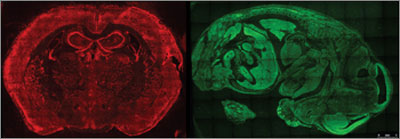 Researchers have developed a new method that allows scientists to pinpoint thousands of mRNAs and other types of RNAs at once in intact cells - all while determining the sequence of letters, or bases, that identify them and reveal what they do.
Researchers have developed a new method that allows scientists to pinpoint thousands of mRNAs and other types of RNAs at once in intact cells - all while determining the sequence of letters, or bases, that identify them and reveal what they do.
Feb 27th, 2014
Read more
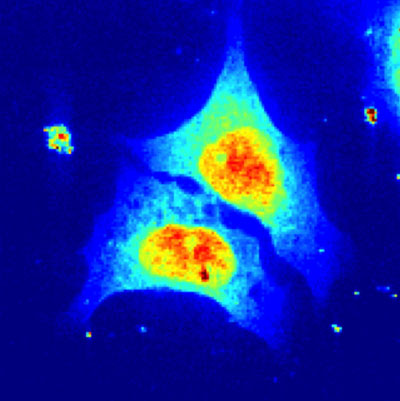 At Deutsches Elektronen-Synchrotron's PETRA III research light source, scientists have carried out the first studies of living biological cells using high-energy X-rays. The new method for the first time enables us to investigate the internal structures of living cells in their natural environment using hard X-rays.
At Deutsches Elektronen-Synchrotron's PETRA III research light source, scientists have carried out the first studies of living biological cells using high-energy X-rays. The new method for the first time enables us to investigate the internal structures of living cells in their natural environment using hard X-rays.
Feb 27th, 2014
Read more
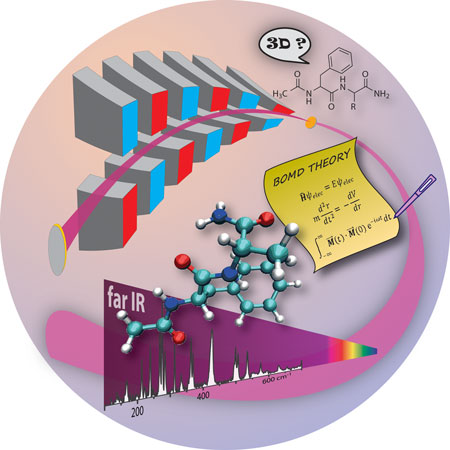 Chemists from Radboud University Nijmegen and the Foundation for Fundamental Research on Matter (FOM) have succeeded in producing detailed 3D structures of selected peptides - the building blocks of proteins.
Chemists from Radboud University Nijmegen and the Foundation for Fundamental Research on Matter (FOM) have succeeded in producing detailed 3D structures of selected peptides - the building blocks of proteins.
Feb 27th, 2014
Read more
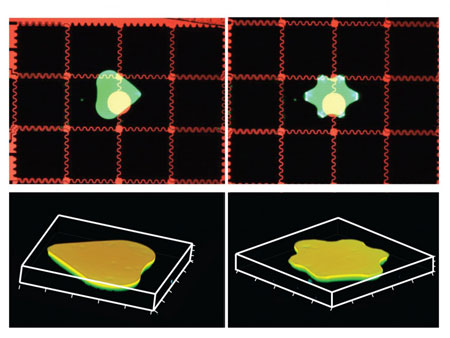 Stars, diamonds, circles. Rather than your average bowl of Lucky Charms, these are three-dimensional cell cultures generated by an exciting new digital microfluidics platform.
Stars, diamonds, circles. Rather than your average bowl of Lucky Charms, these are three-dimensional cell cultures generated by an exciting new digital microfluidics platform.
Feb 26th, 2014
Read more
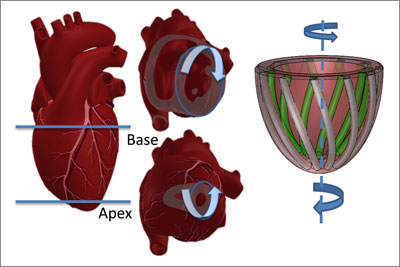 Researchers demonstrate a new material's potential by using it to replicate the biological motion of the heart, and also developed a matching 3D computer model of it.
Researchers demonstrate a new material's potential by using it to replicate the biological motion of the heart, and also developed a matching 3D computer model of it.
Feb 26th, 2014
Read more
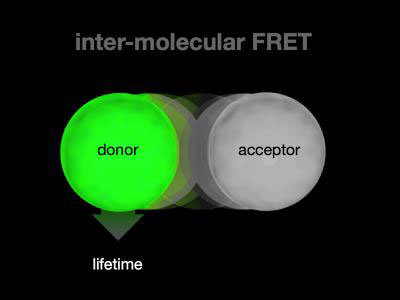 For the first time, a group of scientists has been able to observe intact interactions between proteins, directly in the brain of a live animal.
For the first time, a group of scientists has been able to observe intact interactions between proteins, directly in the brain of a live animal.
Feb 24th, 2014
Read more
Scientists have made an important breakthrough: they have discovered a way to transform skin cells into mature, fully functioning liver cells that flourish on their own, even after being transplanted into laboratory animals modified to mimic liver failure.
Feb 23rd, 2014
Read more
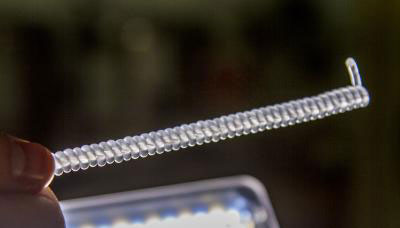 An international team led by The University of Texas at Dallas has discovered that ordinary fishing line and sewing thread can be cheaply converted to powerful artificial muscles.
An international team led by The University of Texas at Dallas has discovered that ordinary fishing line and sewing thread can be cheaply converted to powerful artificial muscles.
Feb 20th, 2014
Read more
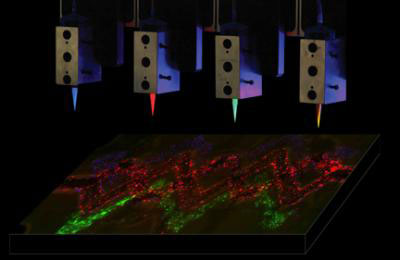 A new bioprinting method developed at the Wyss Institute for Biologically Inspired Engineering at Harvard University and the Harvard School of Engineering and Applied Sciences creates intricately patterned 3-D tissue constructs with multiple types of cells and tiny blood vessels. The work represents a major step toward a longstanding goal of tissue engineers: creating human tissue constructs realistic enough to test drug safety and effectiveness.
A new bioprinting method developed at the Wyss Institute for Biologically Inspired Engineering at Harvard University and the Harvard School of Engineering and Applied Sciences creates intricately patterned 3-D tissue constructs with multiple types of cells and tiny blood vessels. The work represents a major step toward a longstanding goal of tissue engineers: creating human tissue constructs realistic enough to test drug safety and effectiveness.
Feb 19th, 2014
Read more
Biochemists from Konstanz develop genetic switch to control cancer-fighting viruses.
Feb 19th, 2014
Read more
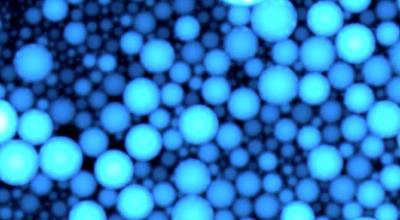 Researchers have made important discoveries regarding the behavior of a synthetic molecular oscillator, which could help create artificial cells.
Researchers have made important discoveries regarding the behavior of a synthetic molecular oscillator, which could help create artificial cells.
Feb 18th, 2014
Read more
Refining genomic data may help researchers gain traction against human disease.
Feb 18th, 2014
Read more
 Our DNA and its architecture are duplicated every time our cells divide. Histone proteins are key building blocks of this architecture and contain gene regulatory information. Danish researchers show how an enzyme controls reliable and high-speed delivery of histones to DNA copying hubs in our cells. This shuttling mechanism is crucial to maintain normal function of our genes and prevent diseases as cancer.
Our DNA and its architecture are duplicated every time our cells divide. Histone proteins are key building blocks of this architecture and contain gene regulatory information. Danish researchers show how an enzyme controls reliable and high-speed delivery of histones to DNA copying hubs in our cells. This shuttling mechanism is crucial to maintain normal function of our genes and prevent diseases as cancer. 
 Subscribe to our Biotechnology News feed
Subscribe to our Biotechnology News feed








